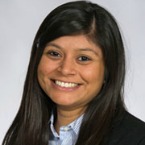By: Namrata Patel, MD & Steven Leber, MD, PhD, FAAP
"My head hurts." Across the U.S., parents hear this complaint from their children and teenagers at a rate so frequent that it can be hard to know whether it is, in fact, a painful headache (or just an excuse to stay home from school). Head pain in babies and children too young to tell you their head hurts are often fussier, crankier, and unable sleep.
While most headaches are harmless and go away within a few hours, recurrent headaches of any type can cause school problems, behavioral problems, and/or depression. In this article, learn when to involve your pediatrician.
It's important to know when headaches may be a symptom of something more serious.
Home Care for Children's Headaches
Anyone who has ever had a mild, occasional headache knows rest and relaxation is often the best treatment. Other things like ice packs, warm shower or baths, naps in a dark room, and head and neck
massage may also help.
Use Caution with Over-the-Counter Pain Medicine
Don't be tempted to turn to over-the-counter pain medication every time your child complains of head pain.
If you do, be sure to always read the label for any medication to determine the right dose based on your child's weight.
Acetaminophen (Tylenol): You can give your child one dose to help reduce headache. Do not exceed the maximum dosage and frequency for children, 22-33 milligrams per pound within a 4-hour period.
Ibuprofen (Motrin/Advil): If acetaminophen does not initially work, you can also give one dose of ibuprofen. Do not exceed the maximum dosage and frequency for children, 13-22 milligrams per pound within a 12-hour period. Keep track of how often you are giving these medications. If you are using more than 3 doses total per week, consult your pediatrician to determine if other medication is required. Using more than three doses per week can also lead to
medication overuse headaches (also known as analgesic rebound headaches). Children and teenagers can get these types of headaches from taking pain medicine too often, and therefore, being dependent on the medication. The over-the-counter medications no longer work to reduce pain, and the headaches become more frequent and more painful! Not good.
|
Keep a Headache Diary
There are a number of types of headaches, as well as potential causes. So, it can be helpful to see if a pattern develops. There are many different apps and online tools available to help you and/or your child. Your pediatrician will use this information to determine the best course of treatment.
What to include in a headache diary?
Date and time of headache
How long did the headache last?
What symptoms did your child experience?
What helped relieve the pain?
What made the pain worse?
Did anything specific happen that day (a test coming up in school, infectious symptoms, eating a certain food, trouble sleeping, etc.)?
Common Types of Headaches:
Each type of headache may be treated differently. A detailed history and physical exam help your pediatrician figure out what kind of headache your child has. Based on your child's diagnosis, your pediatrician will create a plan with you on how to best relieve your child's pain.
Tension headaches
| Mild or moderate headache Typically develops during the middle of the day Constant, dull or achy pain Sensation of tightness that feels like a band or circle around the head Pain located in the forehead or on both sides of the head Neck pain Fatigue
| Daily headaches Headaches caused by straining from coughing, sneezing, running or having a bowel movement. Headaches that occur along with pain in the eye or ear, confusion, nausea or vomiting, sensitivity to light and sound, or numbness. Headaches that keep coming back and get worse.
Headaches following a head injury that don't go away after a week. Headaches severe enough to wake from sleep.
| Sudden, severe head pain happening for the first time--especially if your child has double vision, seems confused, sleepy, hard to wake up, has numbness or projectile vomiting. Headache with a stiff neck, or complaints of neck pain, especially with a fever.
|
|---|
Migraine headaches | Throbbing pain that is often on one side of head, but can be on both sides--particularly in children Light and/or noise sensitivity Fatigue Nausea and vomiting Mood changes An aura: flashes of light, zig-zag lines or other odd vision changes that may appear before or during a migraine
Note: Some symptoms of a migraine may be slightly different in children than adults. |
|---|
Congestion headaches | Pain and pressure above a sinus, often above the eyebrow, behind the eye, and under the cheekbone Pain may be on just one side of the face/head Blocked or runny nose
|
|---|
Medication overuse (analgesic rebound headaches) | Pain starting behind the eyes and moving up the front of the head, or dull ache around the forehead Grogginess Irritability
Flu-like aches and pains May start after pain reliever use ends Caffeine in sodas and energy drinks can also be a culprit
|
|---|
Headaches after a head injury | |
|---|
Does my child need a CT-scan?
Imaging of the brain, blood tests and invasive procedures are NOT required to diagnose headaches. In some cases, brain imaging or a lumbar puncture is needed if a more serious condition is suspected. If necessary, the pediatrician will discuss what further tests are needed and why. The pediatrician may also recommend that your child see a pediatric neurologist who can help provide further recommendations for your child's headache.
Remember:
Many times, when children get headaches, they'll be gone as quickly as they come. Rest, rehydration, and healthy routines will usually keep them go away. But, be sure to call your pediatrician any time you have concerns about your child's headache pain.
Additional Information:
About Dr. Patel:
 Namrata Patel, MD, is a Pediatric Neurology Resident at Michigan Medicine's C.S. Mott Children's Hospital. Within the American Academy of Pediatrics, she is a member of the Section on Pediatric Trainees.
Namrata Patel, MD, is a Pediatric Neurology Resident at Michigan Medicine's C.S. Mott Children's Hospital. Within the American Academy of Pediatrics, she is a member of the Section on Pediatric Trainees.
About Dr. Leber:
 Steven Leber, MD, PhD, FAAP, is a Pediatric Neurology Attending at Michigan Medicine's C.S. Mott Children's Hospital. Within the American Academy of Pediatrics, he is a member of the Section on Neurology.
Steven Leber, MD, PhD, FAAP, is a Pediatric Neurology Attending at Michigan Medicine's C.S. Mott Children's Hospital. Within the American Academy of Pediatrics, he is a member of the Section on Neurology.